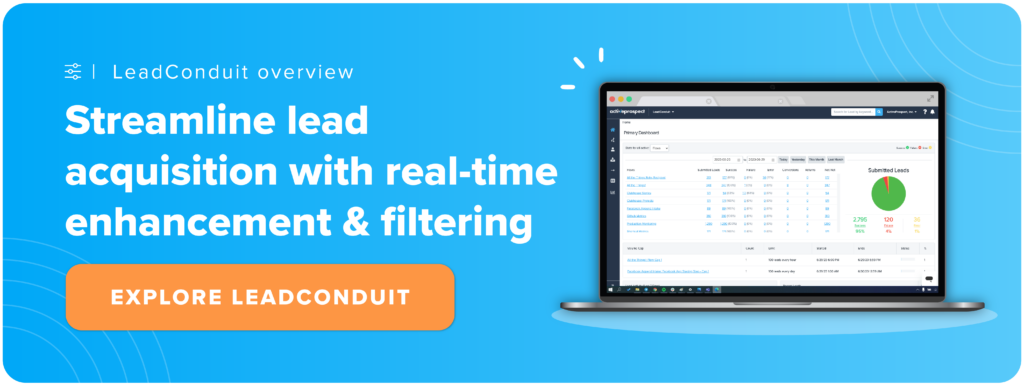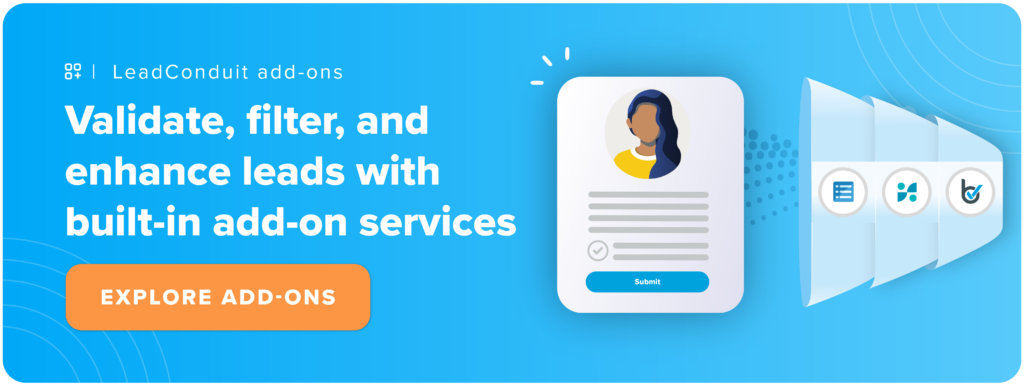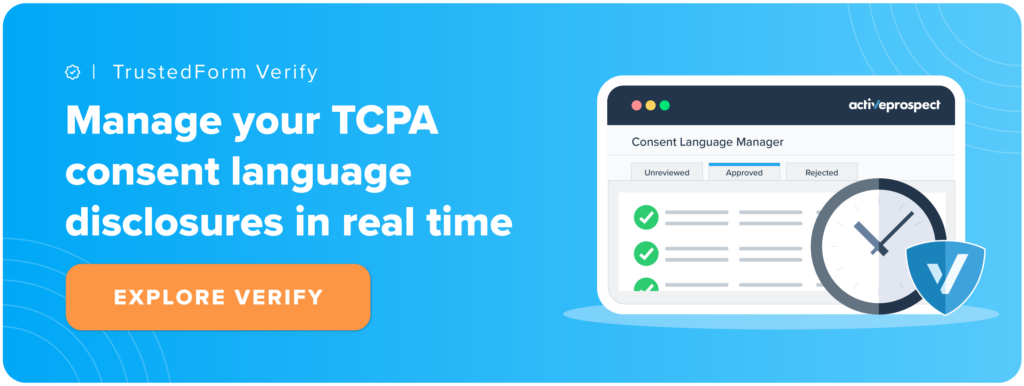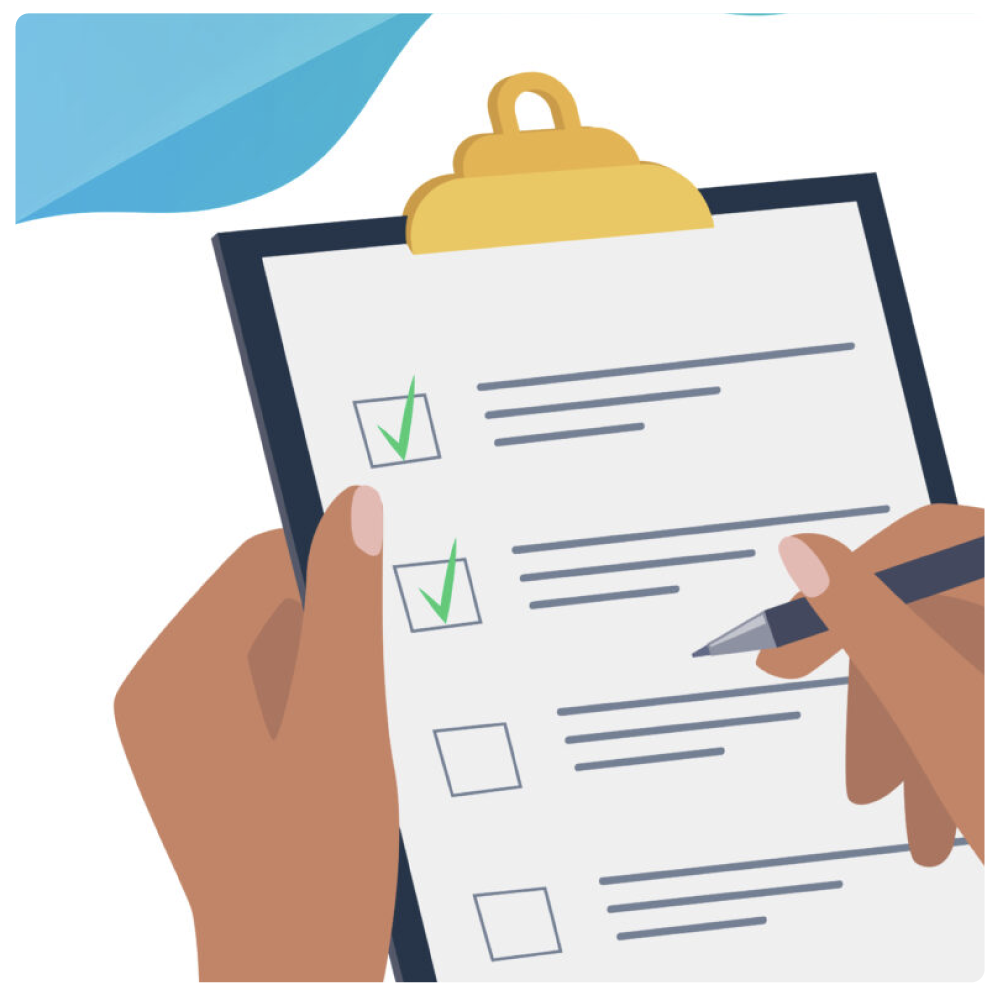The importance of lead validation for lead buyers and generators

The quality of your leads can make or break your success. Today, 80% of new leads never result in sales, often because they aren’t properly validated or followed up on. This highlights the importance of lead validation, which ensures that the leads you acquire or generate are both accurate and relevant to your business, leading to higher conversion rates and better ROI.
This guide will explore the nuances of lead validation, including its importance, the differences between validation and verification, and how implementing a robust validation strategy can transform your lead management.
We’ll also go over the mechanics of the lead validation process and the powerful tools available, such as LeadConduit, to streamline and enhance your efforts. Whether you’re a lead buyer or a lead generator, understanding these concepts can significantly elevate your performance and bottom line.

What is lead validation?
It’s the process of confirming the accuracy and relevance of potential customer information before pursuing further engagement. It ensures that the leads are genuine and meet specific criteria set by the business. This step is crucial for maintaining a high-quality sales pipeline.
Why is lead validation important?
Without it, you’re at risk of wasting time and resources on leads that won’t work for you. Valid leads, on the other hand, are more likely to become your customers, boosting your conversion rates and delivering a better return on your investment.
Lead validation vs. lead verification: What’s the difference?
Lead validation and lead verification are both essential in the sales process, but they have different roles.
The former is about assessing the quality and potential of a lead, making sure it’s a good fit for your target market and business objectives.
The latter, on the other hand, zeroes in on specific lead data, making sure contact details like email addresses and phone numbers are accurate and current.
When we talk about lead validation, we’re considering the bigger scope of things. It’s about deciding if a lead is a good fit for your business, while lead verification is about confirming that the contact information is accurate and usable. Although they are different, they’re both important for effective lead management and successful conversions.
The importance of lead validation in lead buying and generation
The implementation of a validation strategy is crucial for the improvement of lead quality. By filtering out unqualified leads early on, you save time and resources. This, in turn, increases the likelihood of high-quality leads converting, leading to a better ROI and a more robust sales pipeline.
Reducing wasted effort
Without validation, your sales team might be chasing after leads that aren’t the right fit. This can be a source of frustration and lost productivity. By validating leads, you’re helping your team focus on the most promising prospects, making the most of their efforts and boosting conversion rates.
Improving customer satisfaction
Verified leads are more inclined to be interested in what you offer. This means that when your sales team makes contact, the conversation is more likely to be fruitful. Satisfied customers are more likely to convert and become loyal advocates for your brand.
Enhancing data accuracy
Lead validation software can streamline the verification process, guaranteeing that the data you gather is both precise and current. This diminishes the likelihood of inaccuracies and bolsters the dependability of your customer database. Accurate data is crucial for fast decision-making and effective marketing strategies.
For organizations handling complex customer data, like those managing pension funds, the need for integrated, end-to-end software is critical. Effective pension fund management software not only centralizes workflows and enhances data accuracy (which aligns closely with lead validation needs) but also streamlines compliance, investment oversight, and reporting.
If your role touches on operational efficiency or digital transformation in the financial services sector, you may find valuable insights on selecting and leveraging such solutions in this ultimate guide to pension fund management software—read more about its practical applications and advantages.
How a lead validation process works
The process begins by pinpointing the essential characteristics of your ideal customer. These could be industry, company size, job title, or geographic location. By setting these parameters, you can be confident that the leads you’re going after are a strong match for your business.
1. Data collection
Once you’ve got your criteria nailed down, it’s time to start gathering data on potential leads. You can do this in a number of ways, from online forms to social media to marketing campaigns. The key is to get as much relevant information as you can to help you evaluate each lead’s potential.
2. Automated verification
A lead validation software can automate this process. It checks the accuracy of the lead’s contact information, such as email addresses and phone numbers, and helps identify any discrepancies or red flags that might disqualify the lead.
3. Scoring and prioritization
Once leads are validated, they’re scored according to their potential value and how well they fit your ideal customer profile. This helps your sales team decide which leads to focus on first. The higher the score, the more likely the lead is to convert.
4. Continuous improvement
The lead validation process is not a one-time task. It should be an ongoing effort to continually refine your criteria and improve the quality of your leads. Regularly reviewing and updating your validation process ensures that you stay ahead of the competition and maintain a robust sales pipeline.
Enhancing your lead validation process with LeadConduit
LeadConduit streamlines your lead acquisition process to efficiently acquire customers at scale. Custom lead flows automatically enhance and filter leads in real time to deliver the highest-quality prospects to your CRM or lead buyer.
Working as a lead validation software, LeadConduit is a handy tool that automates the process of validating and verifying leads. It meticulously checks lead data, ensuring email addresses and phone numbers are spot on, and that the leads match your specific criteria. LeadConduit makes validating leads a breeze, boosting efficiency and effectiveness.
Instant verification with LeadConduit add-ons
LeadConduit offers built-in plug-and-play add-ons that you can add to your workflow to immediately verify phone, email, and address information. These tools swiftly assess the accuracy of contact details, guaranteeing that you only connect with leads who have the most current information. This not only saves time but also minimizes the risk of chasing after invalid leads.

The importance of known litigant scrubs
Scrubbing known litigants is essential in safeguarding your business from potential legal entanglements. LeadConduit can play a pivotal role by sifting out leads with a history of litigation, allowing your sales team to stay away from known plaintiffs and attorneys.
Explore our Litigator Scrub by Contact Center Compliance (dnc.com) add-on.
Real-time TCPA disclosure verification
Compliance with the Telephone Consumer Protection Act (TCPA) is crucial. TrustedForm Verify helps you automatically check that all required disclosures are in place before you reach out to leads, streamlining TCPA compliance verification. This tool is your ally in maintaining regulatory compliance, shielding your business from legal entanglements and penalties.

Final thoughts
Lead validation is a crucial part of lead management. It guarantees that the leads you’re after are not only a great match for your business but also provide precise, useful information.
By setting up a solid validation process, you’re cutting out the time-wasters and boosting your sales team’s productivity. The result? Better conversion rates and a more robust sales pipeline. Verified leads are more likely to be genuinely interested in your offerings, leading to more positive and productive interactions. This not only improves customer satisfaction but also fosters long-term loyalty and advocacy.
Continuously improving your validation process is key to staying ahead in a competitive market. Regularly refining your criteria and methods ensures that you maintain a strong and reliable sales pipeline, driving sustained growth and success.






